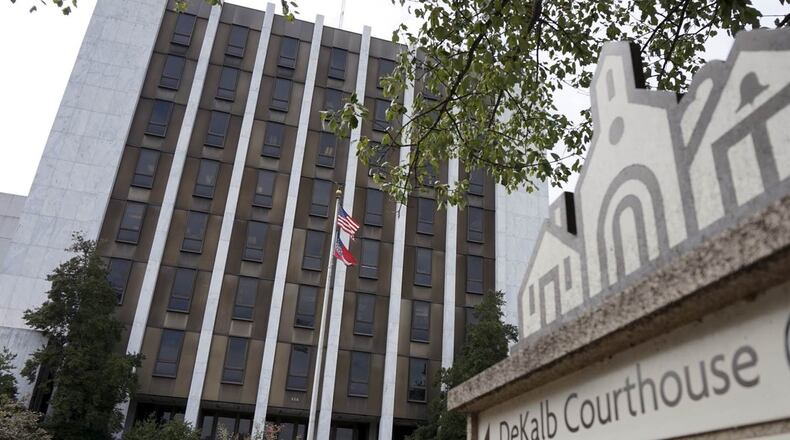Remember this summer's special election for DeKalb County tax commissioner? Turns out, it wasn't necessary.
Tax Commissioner Irvin Johnson won his lawsuit that argued he shouldn't have had to run in a special election to finish the term of Claudia Lawson. As Lawson's chief deputy, Johnson took over after she retired Dec. 31, and a judge ruled that an 8-year-old state law requiring the special election is unconstitutional.
Johnson was victorious in the special election anyway, minimizing the immediate impact of the court decision. He also won the Democratic primary for the next four years and doesn't have an opponent in November's general election.
But from now on, when a DeKalb tax commissioner retires, the chief deputy tax commissioner will ascend to the job until the next regularly scheduled election.
That’s how DeKalb should have handled succession all along, according to Superior Court Judge Chris Edwards’ decision issued Sept. 6. He ruled that a 1982 general state law that covers Georgia’s four most populous counties — Fulton, Gwinnett, Cobb and DeKalb — trumped the 2008 local law that affects DeKalb alone.
In addition, Johnson should have been identified as the incumbent on the ballot — as he insisted — because he was already the permanent tax commissioner, Edwards wrote.
Johnson said the ruling validated his lawsuit, which he filed May 18, the week before the special election.
“Going forward, the taxpayers won’t have the specter of this happening when a tax commissioner resigns or leaves office,” Johnson said. “That’s a benefit to the taxpayers.”
The tax commissioner oversees the collection of nearly $1 billion in annual property and motor vehicle taxes in the county government's highest-paying job, with compensation of about $242,000. The tax commissioner doesn't set tax rates or assess property values.
DeKalb's government doesn't have to pay about $70,000 in attorney fees for Johnson's lawyer, according to Edwards' decision. But taxpayers are responsible for the cost the county paid to hire an outside attorney, R. David Ware, to defend the case — $72,226 invoiced through August.
Each side has 30 days to decide whether to appeal the decision.
“It does not have any immediate impact on DeKalb residents, but … it has the potential to impact the playing field for future elections,” said DeKalb spokesman Burke Brennan. “It is a principled interpretation of the law, which we disagree with, and we’re continuing to explore our options.”
Johnson received the most votes, 38 percent, in the three-way May 24 special election against attorney Susannah Scott and former DeKalb Commissioner Stan Watson. Then in a special election runoff July 26, Johnson defeated Scott with 59 percent of the vote.
Holding the special election didn’t cost DeKalb’s government any extra money because other countywide races were also on the ballot, said Elections Director Maxine Daniels.
Johnson’s attorney, Samuel Woodhouse, said the lawsuit was important because it clarified conflicting state laws and protected Johnson’s rights. Woodhouse said he wouldn’t charge Johnson, since the judge didn’t award attorney fees.
“Constitutional officers should make sure they take the responsibility to challenge any law that impedes their position in their office,” Woodhouse said.
About the Author
Keep Reading
The Latest
Featured




